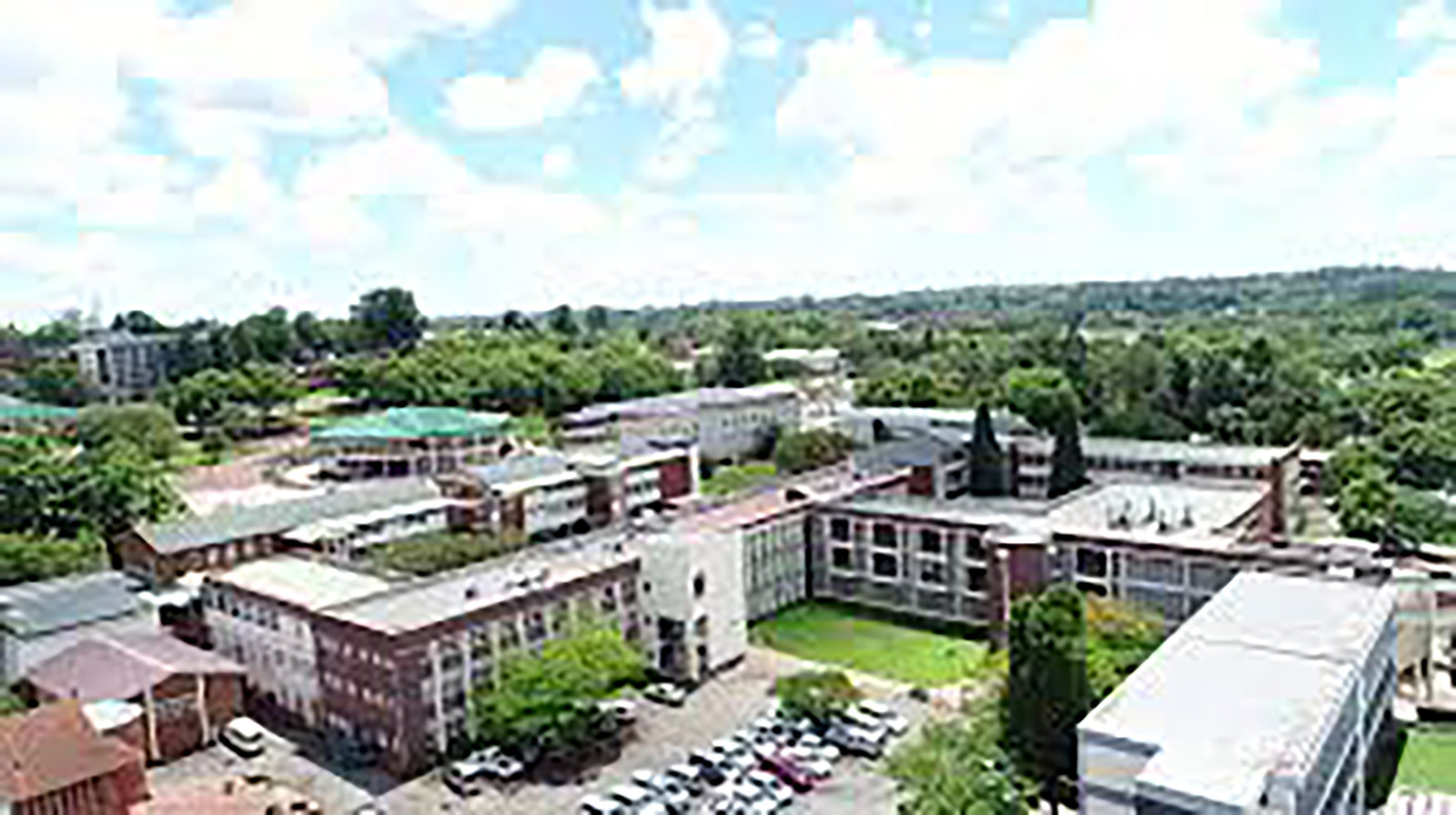Erosion threatens solar plant
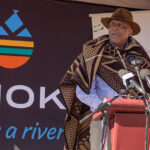
SHARE THIS PAGE!
‘Mantšali Phakoana
A multi-million maloti solar plant at Ha-Ramarothole in Mafeteng is facing mounting environmental challenges, raising concerns about the long-term sustainability of the plant envisaged to supply 30MW of electricity into the country’s national power grid.
The project is financed by a soft loan from EXIM Bank of China which injected US$70.188 million (about M1.3 billion). The government of Lesotho chipped in with an additional M220 million covering the costs of land compensations valued around M57 million, tax obligations as well as operating costs of the Lesotho Generation Company (LEGCO) under the ministry of natural resources.
The facility that occupies a 220-hectare plot of land in the village of Ha-Ramarothole in Likhoele, Mafeteng was officially launched in June last year.
Almost a year later, the solar farm is now threatened by massive erosion characterised by dongas and gullies that are posing a serious threat to the energy investment.
The erosion problem affected the boundary fence and the foundations of some of the solar panels. Recognising the urgency of the situation, the Lesotho Electricity Generation Company (LEGCO) sought assistance from ReNoka, a non-governmental organisation.
Local communities are now implementing targeted measures to reduce the volume and speed of water runoff, and curb gully formations around the solar plant site.
In an effort to safeguard the facility against more land degradation and ensure the longevity and resilience of Lesotho’s renewable energy infrastructure, ReNoka and LEGCO launched the Public Private Partnership and signed a Memorandum of Understanding (MoU) this week.
In an interview with theReporter on the sidelines of the launch, one of the community members working at the solar plant to combat soil erosion, Mahlomola Lebajoa from Ha Lempetje said they earn M1500 to rehabilitate dongas and prevent further soil erosion.
“The money is not that much considering the high living costs nowadays but at least it makes a huge contribution to our livelihoods. The job also is not easy because we have to carry heavy loads of cement, stone and pipes as we work to prevent soil erosion. But because we know that we have to work in order to eat, we have no choice but try our best.
“Since the establishment of this project, this is the only way I can say we have benefited as a community, through employment. Some villagers who believe they cannot work hard have decided to leave as they complained of a lot of work but less payment.
“The battle against soil erosion persists but we are committed to cooperate with relevant departments as well as the country’s security agencies guarding this area. Our commitment can be witnessed by the fact that our livestock has never been grazing around this area; we understand it now belongs to the project,” Lebajoa noted.
Speaking during the launch, German Head of Cooperation, Fabian Kyrieleis indicated that the partnership between ReNoka and LEGCO aims to protect the renewable energy infrastructure investments.
It also seeks to strengthen the climate resilience of the solar power plant site by applying a community-driven, data and risk-informed integrated catchment management approach.
Kyrieleis said the results achieved under the partnership are also relevant beyond the borders of Lesotho, not only because of their impacts on water and energy security, but also through the generation of experiences and lessons learned.
He noted that the partnership between ReNOKA, GIZ and LEGCO underlines the potential of Integrated Catchment Management (ICM) for securing long-term public investments into infrastructure such as renewable energy projects as environmental factors are integrated into planning and tailored measures implemented to restore and protect land and water resources.
“SADC (Southern African Development Community) has acknowledged the importance of land and water resources management as well as climate risk informed decision making to ensure water security and sustainability of developments in the region.
“As last year’s visit of SADC’s Infrastructure Division to Lesotho showed, regional stakeholders are keen to learn from the good practices developed here by ReNOKA and its partners.
“With the partnership we are launching today between the Ministry of Energy and the Ministry of Natural Resources, Germany will be ready to further support Lesotho’s transition towards becoming a producer of green energy and a guardian of the “Water Tower” for water security and prosperity in Lesotho and the whole Southern African region,” Kyrieleis indicated.
For his part, King Letsie III noted that the declining energy, food and water security in the country are negatively impacting on the livelihoods of Basotho.
He highlighted that it has been determined that for Lesotho to improve on this situation and to achieve sustainable development goals (SDGs), there is need to establish and adopt an approach that links all sectors responsible for natural resources management.
King Letsie III stated that Lesotho has long been recognised as the water tower of the region, but as the Ha Ramarothole Solar power plant highlights, the country also has the potential to supply green energy.
The King added that natural resources are not restricted by district or international borders and as such the benefit of the energy produced at Ha Ramarothole stands to benefit people across Lesotho and can eventually be exported to the SADC region.
“The government of Lesotho has therefore adopted the Integrated Catchment Management programme in managing land and water resources within the country.
“We live in times where weather patterns as we have known them, have been affected by climate change. And it is often that developing countries are more heavily impacted by the changing climate than developed countries.
“Therefore, it gives me great pleasure to witness partnerships such as the one we are launching today which strive towards increasing climate resilience of our land, people and public infrastructure while at the same time produce clean energy,” said His Majesty.
The partnership between ReNOKA and LEGCO, he added, has put communities at the heart of the protection of the watershed. This joint initiative reflects the ReNOKA movement and indeed the slogan that says; “noka e tlatsoa ke linokana.”
In her remarks, the European Union ambassador, Paola Amadei said through collaborative efforts with local communities, they have successfully implemented soil rehabilitation measures, reclaiming 565 hectares of watersheds.
She said ReNoka remains steadfast in its commitment to combat erosion through a holistic approach including improved rangeland management, storm water diversion, terrace rehabilitation, and community engagement.
“This undertaking embodies the key values of the Lesotho-Team Europe partnership, a partnership based on long-term sustainability and shared prosperity, as opposed to short-term gains built on fragile foundations. Ours is a partnership that stands for quality investments.
“This approach is at the heart of Global Gateway, the European strategy to boost smart, clean and secure links in digital, climate, energy and transport sectors and to strengthen health, education and research systems across the world,” Amadei noted.
She added: “Inspired by this strategy, we are collaborating through key initiatives such Renewable Lesotho, a programme to maximise Lesotho’s solar, hydro, and wind energy potential for energy security and a new initiative called ‘Metsi a Lesotho, which will be launched next week.
“This initiative will contribute to Sustainable Development Goal 6 on safe water, sanitation and hygiene to all, through supporting access to safe water in 250 rural communities across the country, many of which currently use unimproved services, and sustainable land and water resource management.”
Likhoele principal chief Lerotholi Seeiso reassured their commitment to support initiatives aimed at combatting soil erosion.
He however, questioned the involvement of the public and their chiefs during the projects that concern them and towards the country’s sustainable development.
“What I am expecting from government is to ensure participation and inclusion of the public in matters that concern them. To you Ntate (Nqosa) Mahao as the minister of energy and Ntate (Selibe) Mochoboroane as the legislator for this area, it is so disappointing when the community affected by the projects and the chiefs under the leadership of the concerned areas are not involved or engaged in such projects. How are we expected to safeguard the projects that we have never been part of?” he quizzed.
“I want to make you aware that collective responsibility is all important. Each one of us – from the relevant ministries involved in these projects to the public – have a role to play,” Chief Seeiso concluded.
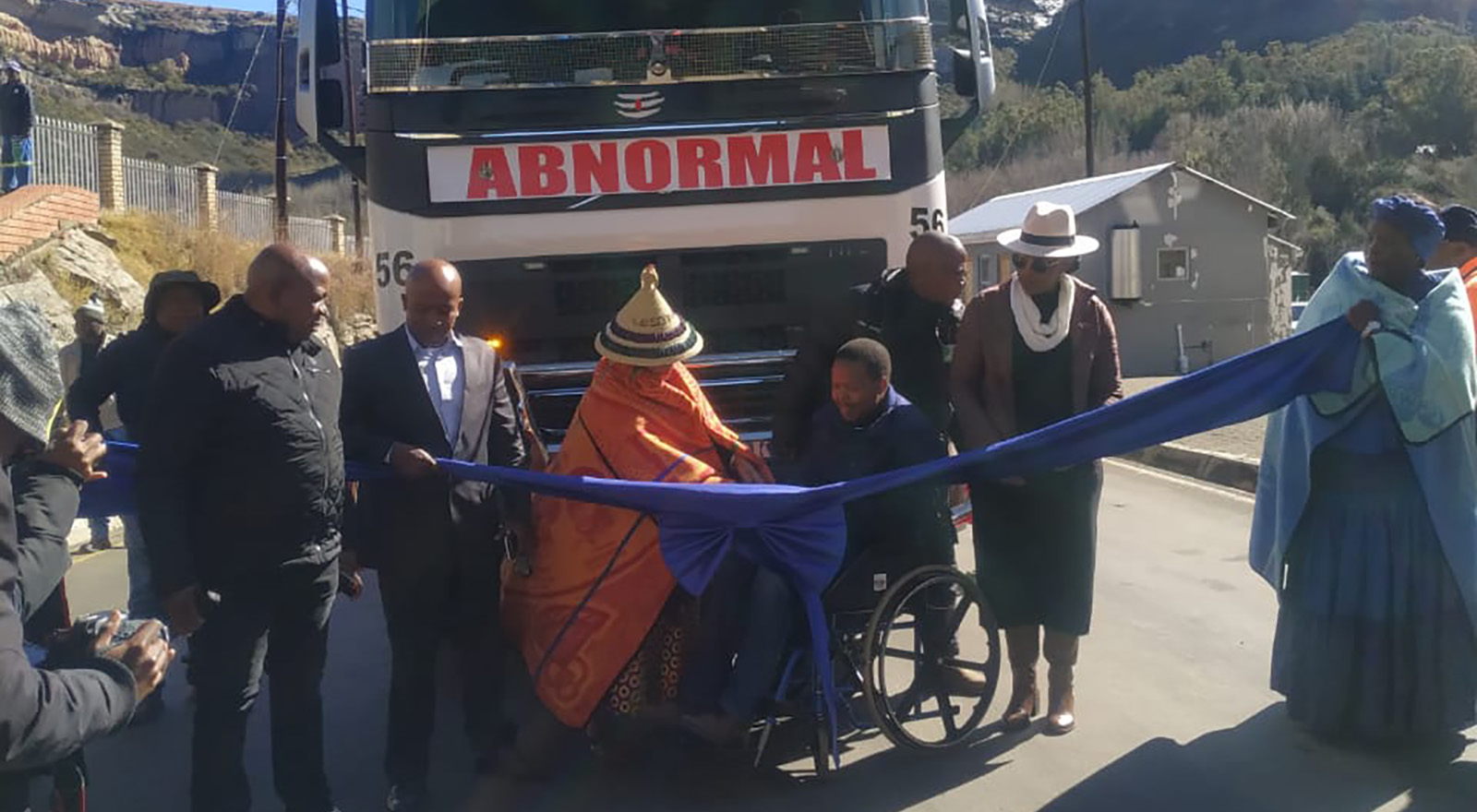
Second TBM arrives in Lesotho
7 days ago
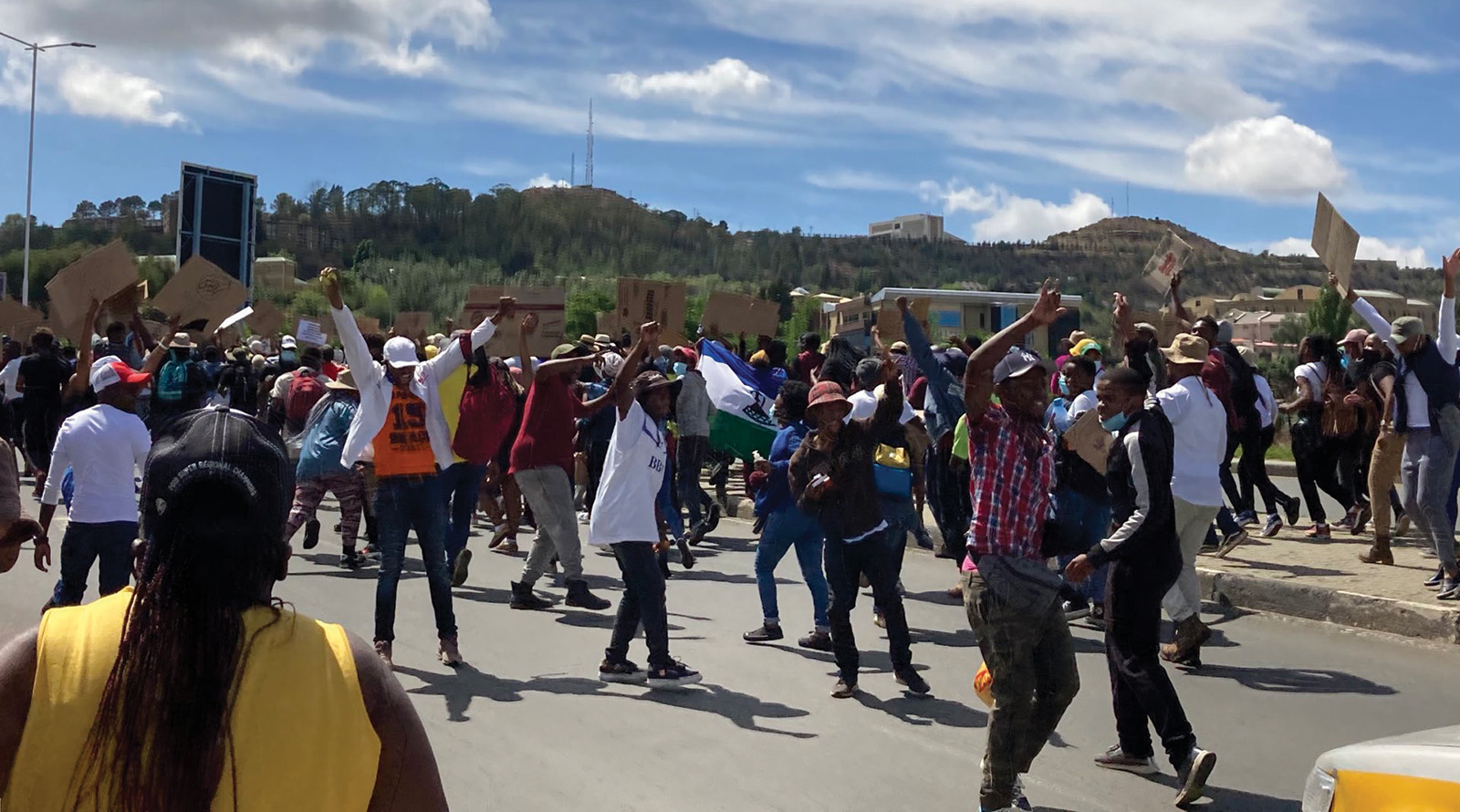
Youth accuse police of sabotaging protest
7 days ago
LCS officers demand standard salaries
8 days ago
Govt ordered to suspend vendors’ eviction
11 days ago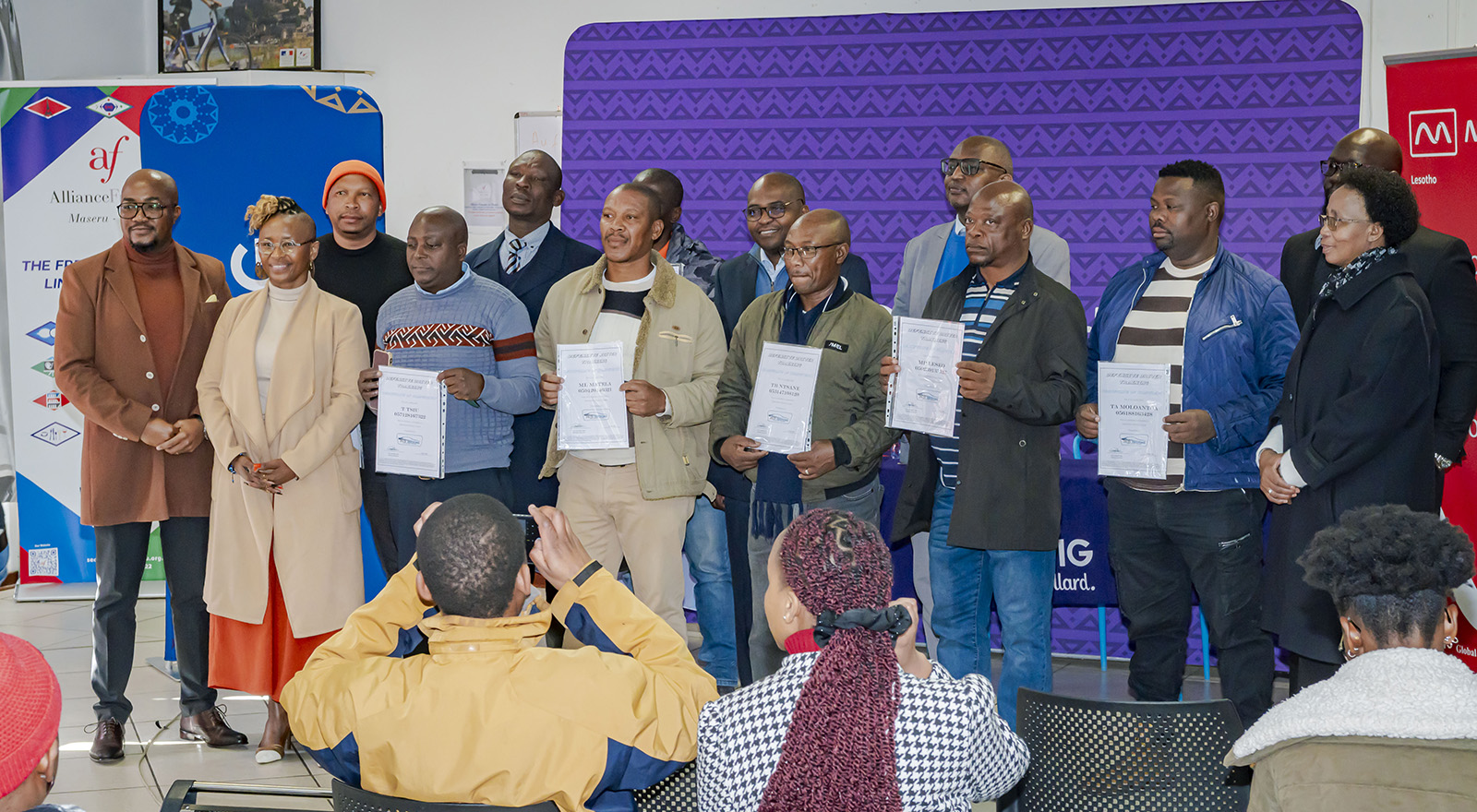
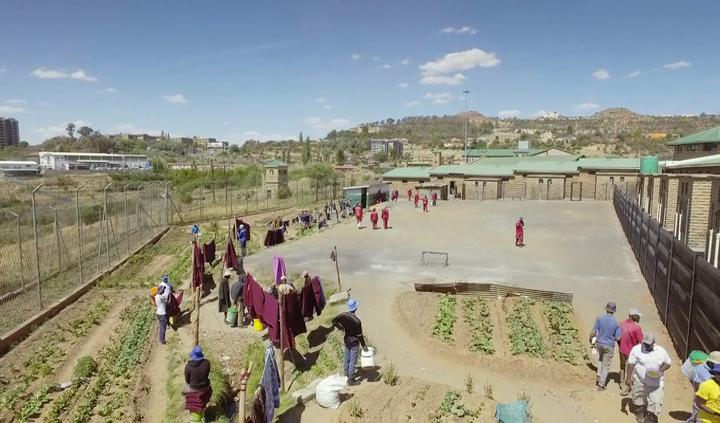
240 inmates released on parole
11 days ago
Matekane calls for stronger trade cooperation
13 days ago